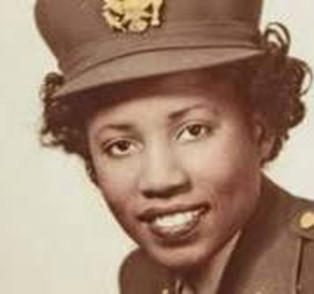 First Lieutenant Nancy C. Leftenant, also known as “Lefty,” became the 1st African American to become a member of the regular Army Nurse Corps. In 1989, she made history again when became the 1st woman elected president of the nonprofit Tuskegee Airmen Inc., which honors and promotes the history of the airmen and introduces young people to aviation and offers them educational assistance.
First Lieutenant Nancy C. Leftenant, also known as “Lefty,” became the 1st African American to become a member of the regular Army Nurse Corps. In 1989, she made history again when became the 1st woman elected president of the nonprofit Tuskegee Airmen Inc., which honors and promotes the history of the airmen and introduces young people to aviation and offers them educational assistance.
In September 2020, she celebrated her 100th birthday at the Dominican Village in Amityville, where she lives in an apartment in the assisted living facility’s independent living section. Nancy was born on September 29, 1920, and grew up in Amityville as one of 13 children of James Sr. and Eunice Leftenant, whose parents were slaves. Military service was appealing to the Leftenant children, and 6 of the siblings would go on to serve, including Leftenant’s brother Sam, a Tuskegee Airman who is believed to have died after a mid-air collision near Austria during World War II.
Nancy joined the Army Reserves in 1945. Because of her race she was unable to get into the regular Army Nurse Corps. In 1948, President Harry Truman ordered the military to be desegregated. Early in her Army career, Leftenant was a traveling nurse, moving between bases and often encountering racism.
In the 1950s, Leftenant worked as a flight nurse with the Air Force, traveling with a Tuskegee crew to accompany wounded soldiers across Korea and Japan and between the two countries. Leftenant married fellow Air Force officer Bayard K. Colon, who died in 1972. The couple had no children, and Leftenant-Colon retired from the military after 20 years of service. She would go on to become a nurse at Amityville High School for 13 years and earn 2 doctorate degrees.
Resources
- https://www.newsday.com/long-island/suffolk/nancy-leftenant-colon-army-nurse-black-tuskegee-aitaamra
- https://tuskegeeairmen.org/wp-content/uploads/2021/09/Leftenant-Colon_Nancy_TA_Bio.pdf
- https://www.youtube.com/watch?v=h0aOUQXMfDs
- https://www.af.mil/News/Article-Display/Article/111663/nurse-faced-hurdles-for-military-acceptance/

